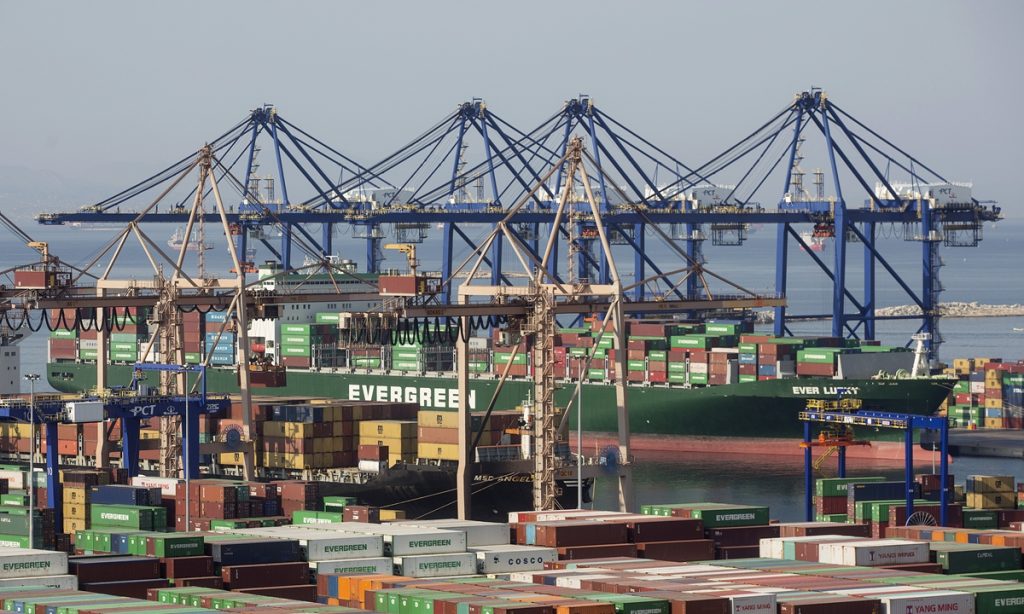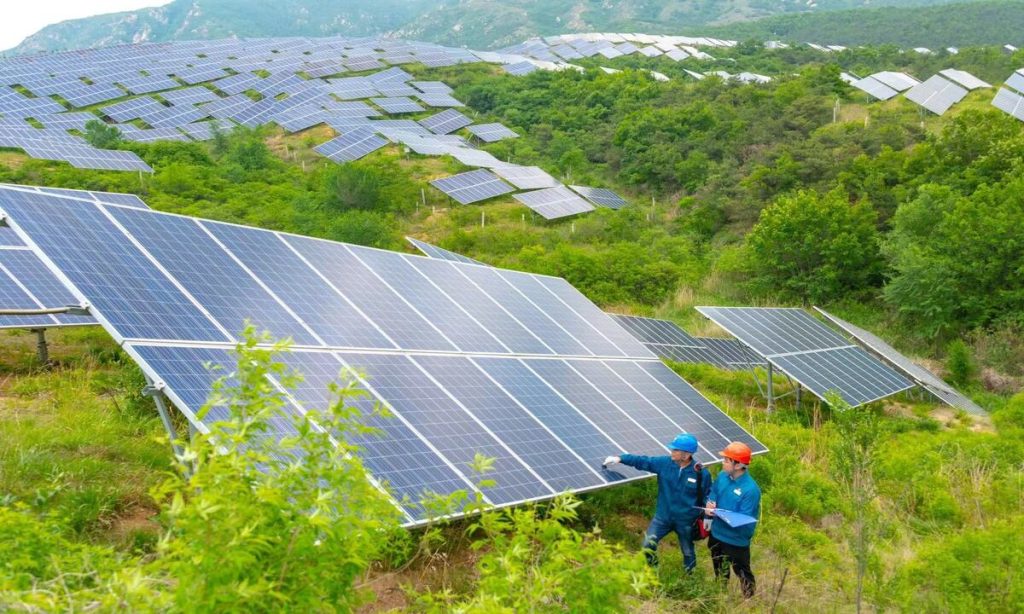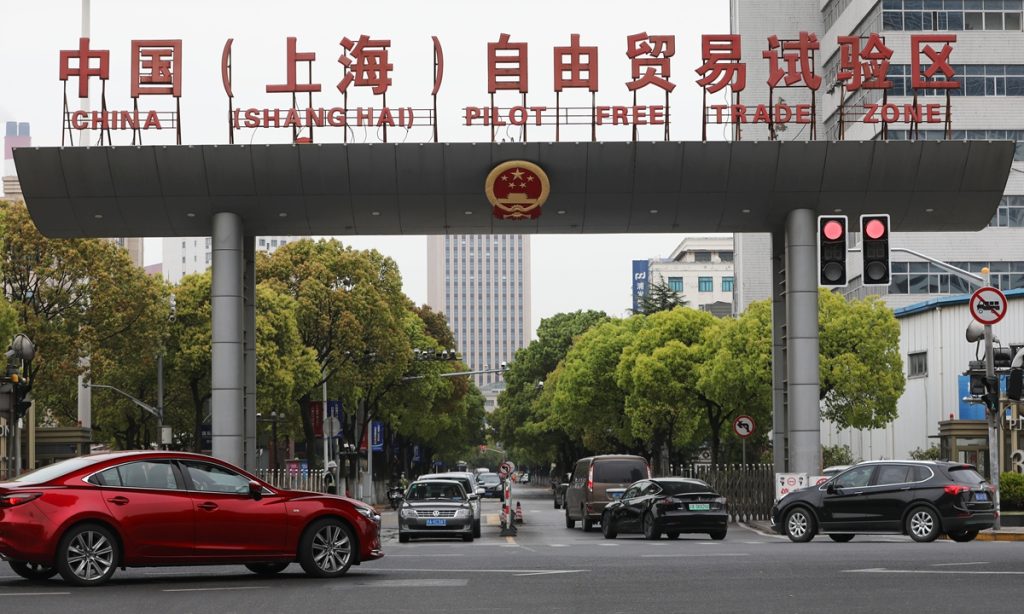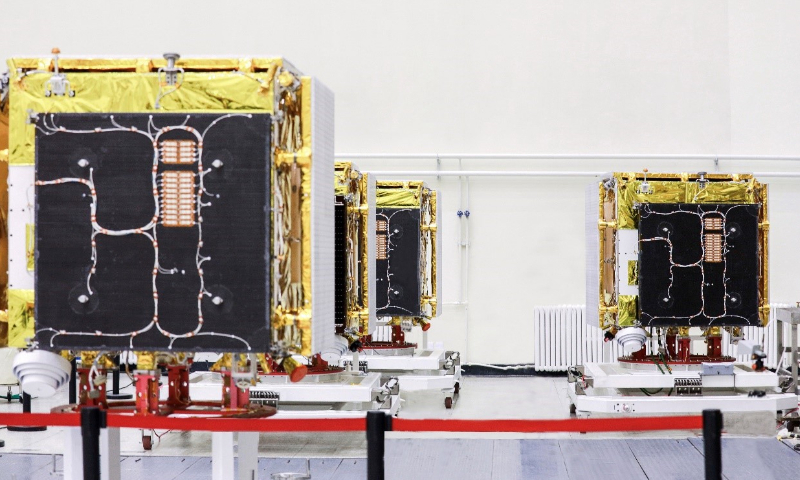China, Greece have vast rooms for cooperation in improving economy, social welfare and mitigating climate change

Editor's note:
China and Greece share a solid foundation of political trust and enjoy robust trade and economic cooperation. This partnership holds substantial potential within the context of the China-CEEC cooperation mechanism and China's Belt and Road Initiative (BRI), which marks its10th anniversary this year. Piraeus Port's transformation led by China COSCO Shipping has been nothing short of extraordinary. In a recent exclusive interview, the Chinese Ambassador to Greece Xiao Junzheng (Xiao) told the Global Times reporter (GT) Yin Yeping how bilateral relations can further deepen and flourish in the coming years.
GT: This year marks the beginning of the second decade of cooperation between China and the Central and Eastern European countries (CEEC). In this context, how could China, Greece, and CEE countries engage in deeper and broader cooperation?
Xiao: Since the initiation of the cooperation mechanism between China and the CEEC, a comprehensive cooperation framework covering more than 20 areas has been established. Many cooperation projects have yielded fruitful results, with bilateral trade doubling over the past decade, and Chinese investment in CEEC increasing sixfold. The China-CEEC cooperation mechanism has become an important platform for the continuous deepening of friendly relations and the ongoing expansion of cooperation between China and the region.
This year marks the beginning of the second decade of cooperation between China and the CEEC. In China's journey toward modernization, Greece can become a significant partner. Likewise, in Greece's efforts to enhance its national competitiveness, China could be a crucial partner, providing assistance and support.
China and Greece enjoy a high level of political mutual trust, a strong foundation for cooperation, and significant potential for the future within the framework of the China-CEEC mechanism. In the future, cooperation can focus on the following aspects:
Firstly, promote mutually beneficial and practical cooperation. The Greek government has prioritized digital transformation and the development of a green economy. Both China and Greece can further align their growth strategies, while expand cooperation in green economy, digital economy, technology innovation, and the service industry.
Secondly, enhance connectivity. China COSCO Shipping's investment project at Piraeus Port and the China-Europe Land-Sea Express Line originating from Piraeus Port have evolved into crucial links between land and sea, effectively connecting Europe and Asia.
In the future, China and Greece can strengthen their commitment to the comprehensive development plan for Piraeus Port, enhance cooperation in trade, make new contributions to stability of the China-Europe industrial and supply chains, promoting economic integration in the Balkans, and advancing the EU integration.
Thirdly, accelerate cultural and tourism cooperation. China supports Greece in hosting the 6th China-CEEC High-level Conference on Tourism Cooperation. China is willing to work with Greece to do a good job in cooperation regarding China-Greece Year of Culture and Tourism, continue to implement the Joint Action Program 2022-2024, build tourism brands, and initiate a broader spectrum of diverse cultural and tourism cooperation.
GT: How do you view the significance of Chinese companies' achievements in Piraeus Port for promoting economic recovery of Greece and the development of China's international maritime industry? What insights can the success in Piraeus offer for future cooperation?
Xiao: Since China COSCO Shipping Group took over the operations of Piraeus Port, they have managed it actively and prudently, making efforts to expand its market presence. This century-old port has experienced a remarkable revival and achieved significant growth, propelling the rapid advancement of local logistics and industrial chains.
Currently, the Piraeus subsidiary of COSCO Shipping has invested over 1 billion euros in port construction. The Piraeus Port has seen a significant rise in container throughput ranking, climbing from 93rd place in 2010 to 29th place in 2021, establishing itself as a leading Mediterranean port. This development has directly created over 3,000 jobs for local community. In total, the efforts have contributed over 1.4 billion euros to local community.
Piraeus Port is the closest European port to the Suez Canal, making it a crucial gateway for Asian goods, including those from China, to enter Europe. Piraeus' development has attracted cargo from multiple countries as a transshipment hub to Europe, significantly enhancing international trade efficiency and reducing shipping costs.
The success of the Piraeus project serves as a vivid example of the BRI and stands as a significant achievement in the cooperation between China and Greece. As long as both China and Greece remain committed to their shared goals, uphold the principles of consultation, joint construction, and shared benefits, and continue to foster a spirit of cooperation and mutual prosperity, by aligning their national development strategies, it is believed that practical cooperation between China and Greece will continue to yield even more fruitful results in the future.
GT: There are voices trying to undermine the mutually beneficial cooperation between China and Greece, the narratives like "China's investment in global ports is a threat." How do you view these voices?
Xiao: China's promotion of the joint construction of the BRI is not driven by geopolitical maneuvering, nor does it pursue self-interest for hegemonic purposes. And, China does not seek to create disruptive alliances. Over the past decade since China introduced the initiative, it has consistently adhered to the principles of mutual consultation, cooperation, and shared benefits. As a result, the Belt and Road has evolved into a widely embraced international public good and a platform for international cooperation. There are some voices alleging that China's investment in Piraeus Port has "non-commercial purposes," which are entirely baseless.
The facts demonstrate that China's cooperation with relevant countries, including Greece, in port development is aimed at promoting economic and trade cooperation between nations. This cooperation contributes to local economic development, infrastructure improvement, and job creation. It is based on mutual benefit and results in win-win outcomes for all parties involved.
In my previous introduction, I highlighted the outstanding achievements that COSCO Shipping Group has secured in operating Piraeus Port. It has transformed Piraeus into a port of win-win cooperation, green development, economic growth and more. The international community has widely recognized these accomplishments, and high-ranking Greek officials, including the President and Prime Minister, have praised the mutually beneficial nature of this project.
In 2022, Piraeus Port also received awards such as the "Outstanding Contribution to Tourism Industry" award from the Greek Ministry of Tourism and the "Diamonds of the Greek Economy" award from Hellenic Shipping News. These accolades further illustrate the widespread recognition and approval of the Piraeus Port project by Greek society.
China's practical cooperation with countries around the world in infrastructure development, including port construction, strictly adheres to the principles of consultation, joint construction, and shared benefits. It aims to create more opportunities for mutual development. This cooperation is conducted transparently and openly, without posing any security threats to any country.
GT: With the optimization of anti-pandemic policies, Greece is expected to see more Chinese tourists. What do you think are the opportunities for cooperation between China and Greece in tourism and cultural exchanges?
Xiao: China and Greece are both ancient civilizations and significant global tourist destinations. People to people exchanges are essential components of practical cooperation. The tourism industry is one of the pillars of the Greek economy, contributing some 20 percent to Greece's GDP. China, with the world's largest middle-income population, has seen rapid development in the tourism market.
In the post-pandemic era, both China and Greece will continue to actively implement the 2022-2024 Joint Action Program, focusing on enhancing cooperation in tourism.
Both sides will make full use of existing tourism cooperation platforms and utilize platforms like the China International Travel Mart to promote bilateral tourism cooperation. Efforts will also be made to enhance visa processing efficiency, and increase direct flights.
I believe that the orderly recovery of China's outbound tourism will enhance the friendship between Chinese and Greek people, strengthen the ties of cultural exchange between China and Greece, and better leverage the tourism industry's significant role in promoting economic development and deepening the friendship between the two countries.
GT: The New Democracy party, led by Greek Prime Minister Kyriakos Mitsotakis, recently won a second four-year term. What are your expectations for bilateral cooperation in the coming months?
Xiao: The ancient Greek philosopher Aristotle once said, friendship is a single soul dwelling in two bodies. China and Greece are comprehensive strategic partners with a history of friendly exchanges dating back thousands of years. In the 51 years since establishing diplomatic relations, both countries have navigated the changing international landscape. Both sides have demonstrated mutual understanding and support on issues of core interests and major concerns. The two countries have become an exemplary model of peaceful coexistence and win-win cooperation between nations of different scales, systems, national conditions, and civilizations.
Following the re-election of the New Democracy Party government, they have continued to support the co-development of the BRI and cooperation between China and Central and Eastern European countries. They are willing to work hand in hand with China to deepen mutually beneficial cooperation.
I believe that in the future, under the guidance of the high-quality construction of the BRI, both sides will promote the realization of China's modernization model and Greece's enhancement of its national competitiveness. Together, both sides will nurture new areas of cooperation such as green development and the digital economy, bringing greater prosperity to the people of both countries.
GT: How do you evaluate the cooperation achievements between the two countries under BRI? And, in which areas could the two countries ramp up their cooperation?
Xiao: China and Greece, despite being geographically distant, have a history of communication dating back over 2,000 years through the ancient Silk Road that spanned east and west. Today, in the midst of deepening globalization, the cooperation in building the BRI is once again connecting the two great civilizations.
With the joint efforts of China and Greece, their mutually beneficial cooperation has yielded fruitful results. This has not only enriched the content of the comprehensive strategic partnership between China and Greece but also has brought tangible benefits to the people of both countries.
Since China COSCO Shipping took over the management of the Piraeus Port, the port has experienced a remarkable transformation. The container throughput has grown from 880,000 TEUs in 2010 to over 5 million TEUs today, making it a leading port in the Mediterranean.
The China-Europe Land-Sea Express Line, from its inception, has become the third trade corridor between China and Europe, in addition to traditional maritime routes and China-Europe freight trains.
China's State Grid Corporation's investment in the Greek national electricity grid project, and State Power Investment Corporation's acquisition of the Kafireas wind power project have alsoy generated significant economic and social benefits.
In the journey to develop green and digital economies and to build new national competitiveness in Greece, both China and Greece can strengthen their partnership through high-quality cooperation in the BRI. We can consolidate and deepen existing cooperation projects, advance connectivity cooperation represented by Piraeus Port and the China-Europe Land-Sea Express Line.
GT: In your opinion, what areas of deep cooperation could China and Greece engage to address climate change and promote green, low-carbon transformation?
Xiao: This summer, Greece experienced extreme high temperatures and wildfires, while many regions in China faced high temperatures and extreme rainfall. Both China and Greece are victims of global climate change and share common aspirations and motivations in addressing climate change.
China adheres to the concept of new development and actively promotes green and low-carbon development, fulfilling international commitments in addressing climate change. In recent years, Greece has also been proactive in addressing climate change issues, enacting clear emission reduction legislation, advancing energy structural adjustments, and vigorously developing a green economy.
The concept of green development is increasingly being reflected in the cooperation projects between the two sides.
Chinese new-energy vehicles have entered the Greek market this year. China and Greece have strengthened their strategic alignment in technology development under the framework of the China-Greece Joint Committee on Science and Technology Cooperation and the Belt and Road Science, Technology and Innovation Cooperation Action Plan.
In the Memorandum of Understanding on China-Greece Scientific and Technological Cooperation signed by the two countries' science and technology departments last year, addressing climate change emerged as a key area of collaboration, with a focus on forest management, challenges related to water resource biodiversity, and climate adaptation policies. Both countries have already established a solid cooperation foundation in green and low-carbon transformation fields such as biomanufacturing and solar energy.
China and Greece have vast rooms for cooperation related to mitigating global climate change by promoting green growth.





